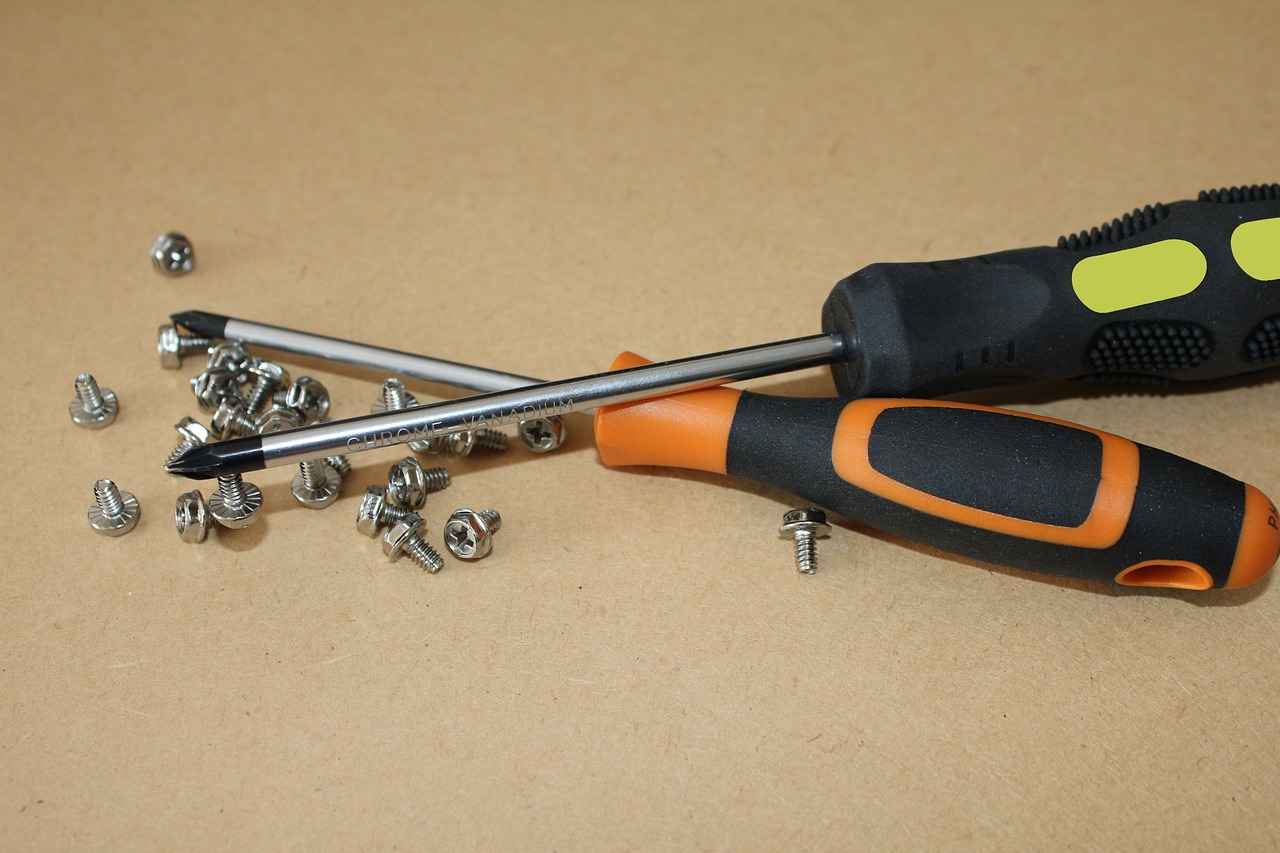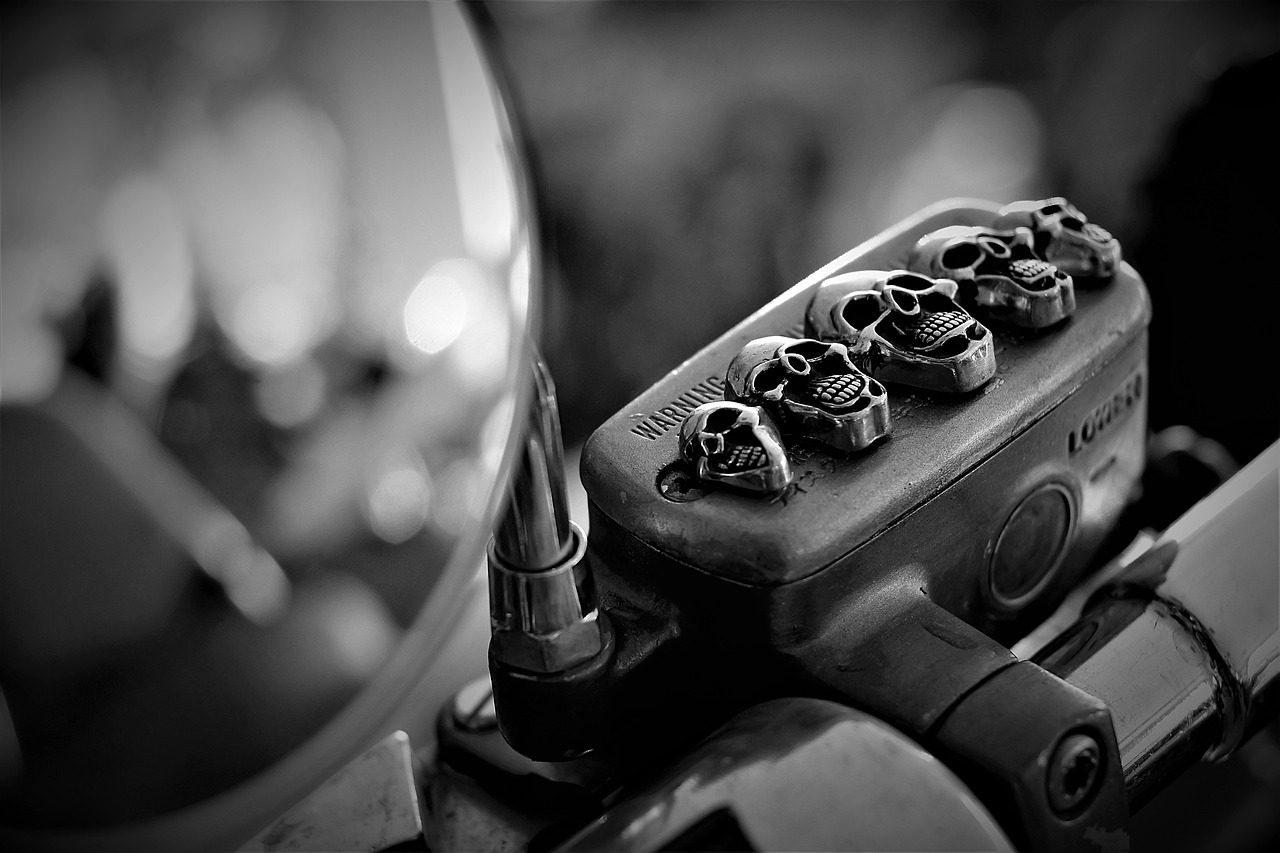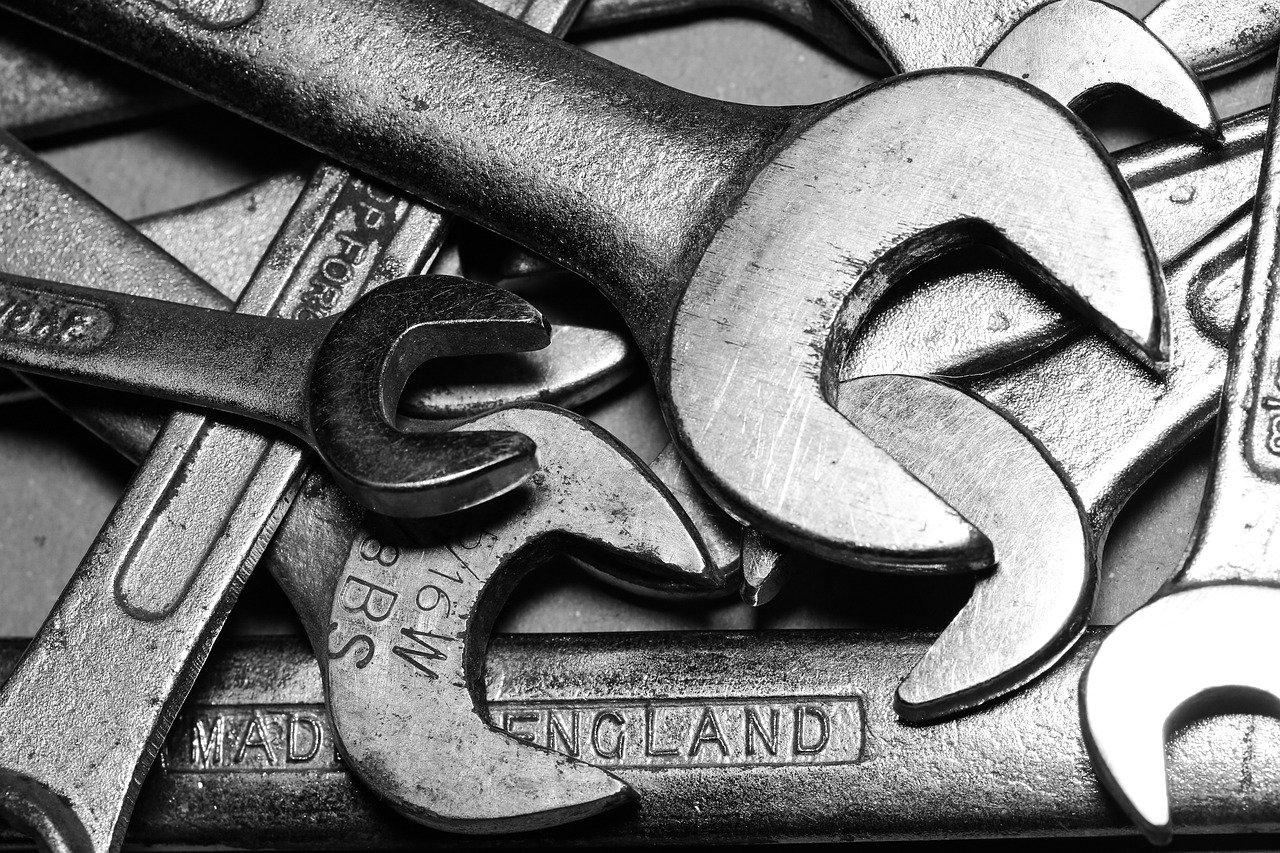The Honda Accord is renowned for its reliability and longevity, making it a popular choice among drivers. In this article, we will delve into the average lifespan of Honda Accords, factors influencing their durability, and practical maintenance tips to help owners maximize the life of their vehicles. With insights from real-world experiences, this guide aims to provide a comprehensive understanding of what makes the Honda Accord a lasting investment.
The average lifespan of a Honda Accord typically ranges between 200,000 to 300,000 miles. However, this can vary significantly based on several factors including maintenance practices, driving conditions, and the specific model year. Many owners have reported reaching over 300,000 miles with diligent care and regular servicing.
Several key factors can impact how long a Honda Accord lasts:
- Regular Maintenance: Adhering to a routine maintenance schedule is essential.
- Driving Habits: Gentle driving can extend vehicle life, while aggressive driving can lead to quicker wear.
- Environmental Conditions: Harsh climates and rough roads can accelerate wear and tear.
Regular maintenance is crucial for maximizing the lifespan of any vehicle, including the Honda Accord. Routine tasks such as:
- Oil Changes: Essential for engine health.
- Tire Rotations: Helps maintain even tire wear.
- Brake Inspections: Necessary for safety and performance.
These practices can prevent major issues and keep the vehicle running smoothly.
Prioritizing maintenance tasks can significantly extend the life of your Honda Accord. Key tasks include:
- Changing the Oil: Every 5,000 to 7,500 miles, depending on oil type.
- Replacing Air Filters: To ensure optimal engine performance.
- Fluid Checks: Regularly inspect coolant, transmission fluid, and brake fluid levels.
Driving habits play a significant role in determining the longevity of a Honda Accord. Aggressive driving, frequent short trips, and heavy acceleration can lead to faster wear and tear. Conversely, smooth acceleration, gentle braking, and maintaining a steady speed can enhance the vehicle’s lifespan.
While Honda Accords are generally reliable, certain issues may arise over time, including:
- Engine Problems: Oil leaks or timing belt failures can occur.
- Transmission Issues: These can be costly and may shorten the vehicle’s lifespan if not addressed.
Owner testimonials provide valuable insights into the actual mileage and longevity of Honda Accords. Many long-term owners have reported achieving over 300,000 miles with proper maintenance. Their experiences often highlight the vehicle’s potential longevity when cared for correctly.
Implementing specific maintenance tips can significantly extend the life of your Honda Accord:
- Tire Maintenance: Regular rotations and maintaining proper pressure are vital for safety and longevity.
- Fluid Checks: Regularly checking and replacing fluids can prevent major mechanical failures.
By following these guidelines and prioritizing maintenance, Honda Accord owners can enjoy a reliable vehicle that lasts for years, making it a smart investment in the long run.

What Is the Average Lifespan of a Honda Accord?
The Honda Accord is renowned for its reliability and longevity, making it a popular choice among car buyers. When considering the longevity of this vehicle, many potential owners wonder about its average lifespan. The average lifespan of a Honda Accord typically ranges between 200,000 to 300,000 miles, but this can vary significantly based on several factors. In this section, we will delve into the elements that influence this lifespan, offering insights that can help current and prospective owners understand what to expect from their Accord.
Several key factors determine how long a Honda Accord can last, including:
- Maintenance Practices: Regular and proactive maintenance is crucial. Routine oil changes, fluid checks, and timely repairs can prevent small issues from becoming major problems.
- Driving Conditions: Vehicles driven in harsh environments or under extreme conditions often experience more wear and tear. For example, frequent short trips can be harder on engines compared to longer highway drives.
- Driving Habits: Gentle driving habits, such as gradual acceleration and braking, can extend the life of the vehicle. In contrast, aggressive driving can lead to premature wear.
- Model Year and Technology: Newer models may come equipped with advanced technology that enhances durability and performance, potentially leading to a longer lifespan.
Owner testimonials provide valuable insights into the actual mileage achieved by Honda Accords. Many long-term owners report driving their vehicles well beyond the 300,000-mile mark, especially with diligent maintenance. Here are some common experiences:
- Owners often share stories of their Accords reaching over 300,000 miles with minimal issues, highlighting the reliability of the brand.
- Many drivers express satisfaction with their vehicle’s performance, noting that consistent care and attention to maintenance have played a significant role in their car’s longevity.
Regular maintenance is not just a recommendation; it is essential for maximizing the lifespan of a Honda Accord. Here are some critical maintenance tasks:
- Oil Changes: Regular oil changes are vital to keep the engine running smoothly. It is generally advised to change the oil every 5,000 to 7,500 miles, depending on the type of oil used.
- Fluid Checks: Regularly checking and replacing fluids, including coolant and transmission fluid, ensures the vehicle operates efficiently and helps prevent major mechanical failures.
- Tire Maintenance: Maintaining proper tire pressure and rotating tires regularly can improve safety and prolong the life of the vehicle.
While Honda Accords are generally reliable, some common issues may arise, such as:
- Engine Problems: Issues like oil leaks or timing belt failures can affect longevity. Awareness of these potential problems can lead to early detection and repair.
- Transmission Issues: Transmission problems can be costly and may significantly shorten the lifespan of the vehicle if not addressed promptly.
In summary, understanding the average lifespan of a Honda Accord involves recognizing the importance of maintenance, driving habits, and environmental factors. By following best practices and being proactive in care, owners can maximize the longevity of their vehicles, often achieving impressive mileages.

What Factors Influence the Longevity of a Honda Accord?
The longevity of a Honda Accord is often a topic of interest for both current and prospective owners. Understanding the various factors that influence how long these vehicles last can help owners make informed decisions about maintenance and driving habits. In this section, we will explore the key elements that significantly impact the lifespan of a Honda Accord.
Several factors can significantly impact how long a Honda Accord lasts. These include:
- Regular Maintenance: Consistent and thorough maintenance is essential for the longevity of any vehicle, including the Honda Accord. Routine tasks such as oil changes, tire rotations, and brake inspections can prevent minor issues from escalating into major problems.
- Driving Habits: The way you drive your Honda Accord can greatly influence its lifespan. Aggressive driving, such as rapid acceleration and hard braking, can increase wear and tear on the engine and brakes, leading to a shorter lifespan.
- Environmental Conditions: The environment in which you drive can also affect your vehicle’s durability. Factors such as extreme temperatures, road conditions, and exposure to salt (in coastal areas) can contribute to corrosion and other forms of wear.
- Model Year: The specific model year of your Honda Accord can impact its longevity. Newer models often come equipped with advanced technology and improved engineering that can enhance reliability.
Regular maintenance is crucial for maximizing the lifespan of any vehicle, including Honda Accords. Key maintenance tasks include:
- Oil Changes: Changing the oil regularly helps to keep the engine lubricated and running smoothly. It’s generally recommended to change the oil every 5,000 to 7,500 miles.
- Tire Rotations: Regularly rotating tires ensures even wear, which can extend their life and improve fuel efficiency.
- Brake Inspections: Regularly checking the brakes can prevent serious issues and ensure safety on the road.
Your driving habits play a significant role in determining how long your Honda Accord will last. Aggressive driving and frequent short trips can lead to faster wear and tear. Here are some tips to promote longevity:
- Avoid Rapid Acceleration: Smooth acceleration can reduce stress on the engine and transmission.
- Limit Short Trips: Short trips can prevent the engine from reaching optimal operating temperature, which can lead to increased wear.
- Practice Safe Driving: Adhering to speed limits and driving cautiously can extend the life of your vehicle.
While Honda Accords are known for their reliability, certain issues may arise over time. Common problems include:
- Engine Problems: Issues such as oil leaks and timing belt failures can impact longevity. Regular checks can help in early detection.
- Transmission Issues: Problems with the transmission can be costly and may significantly shorten the lifespan of your vehicle if not addressed promptly.
Owner testimonials provide valuable insights into the actual mileage and longevity of Honda Accords. Many long-term owners report achieving over 300,000 miles with proper maintenance, showcasing the vehicle’s potential longevity when cared for correctly.
In conclusion, understanding the factors that influence the longevity of a Honda Accord can help owners maximize their vehicle’s lifespan. By prioritizing regular maintenance, adopting safe driving habits, and being aware of environmental conditions, Honda Accord owners can enjoy their vehicles for many miles to come.
How Important Is Regular Maintenance?
When it comes to ensuring the longevity of your vehicle, regular maintenance is not just a recommendation; it is a necessity. This is especially true for popular models like the Honda Accord. By adhering to a consistent maintenance schedule, you can maximize the lifespan of your vehicle and enhance its overall performance.
Regular maintenance serves multiple purposes that contribute to the longevity of your Honda Accord. First and foremost, it helps identify potential issues before they escalate into major problems. For instance, routine oil changes are critical as they ensure that the engine runs smoothly and efficiently. Dirty oil can lead to engine wear and tear, significantly reducing the vehicle’s lifespan.
- Oil Changes: It’s recommended to change the oil every 5,000 to 7,500 miles, depending on driving conditions and oil type.
- Tire Rotations: Regular tire rotations help ensure even wear, extending the life of your tires and improving fuel efficiency.
- Brake Inspections: Frequent checks on your braking system can prevent costly repairs and enhance safety.
- Fluid Checks: Regularly checking and replacing vital fluids, such as coolant and transmission fluid, is crucial for the overall health of your vehicle.
To maintain optimal performance, servicing your Honda Accord every 5,000 to 7,500 miles is advisable. However, this can vary based on driving habits and conditions. For instance, if you frequently drive in stop-and-go traffic or on rough terrains, more frequent service may be necessary.
Your driving style significantly impacts how often you need to perform maintenance. Aggressive driving, which includes rapid acceleration and hard braking, can lead to quicker wear on various components. Additionally, short trips can prevent your engine from reaching its optimal operating temperature, leading to condensation buildup and potential engine issues.
Investing time and resources into regular maintenance can yield several benefits:
- Increased Reliability: A well-maintained Honda Accord is less likely to experience unexpected breakdowns.
- Improved Fuel Efficiency: Regular maintenance can enhance your vehicle’s fuel economy, saving you money at the pump.
- Higher Resale Value: Vehicles with a documented maintenance history tend to have higher resale values.
Many vehicle owners overlook critical maintenance tasks. For instance, neglecting to replace the air filter can lead to reduced engine performance and fuel efficiency. Additionally, ignoring warning lights on the dashboard can result in more severe issues down the road.
In summary, regular maintenance is not merely a routine task; it is a fundamental aspect of vehicle ownership that significantly impacts the lifespan and reliability of your Honda Accord. By prioritizing maintenance, you can ensure that your vehicle remains in excellent condition for years to come.
What Maintenance Should Be Prioritized?
When it comes to maintaining your Honda Accord, prioritizing specific tasks can make a significant difference in the vehicle’s longevity and performance. Regular upkeep not only ensures that your car runs smoothly but also helps in preventing costly repairs down the line. Here are some essential maintenance tasks that every Honda Accord owner should prioritize:
- Changing the Oil: Regular oil changes are crucial for keeping the engine lubricated and functioning efficiently. It is generally recommended to change the oil every 5,000 to 7,500 miles, depending on the type of oil used. Neglecting this can lead to engine wear and decreased performance.
- Replacing Air Filters: The air filter plays a vital role in ensuring that the engine receives clean air for combustion. A clogged air filter can reduce fuel efficiency and engine power. It is advisable to check and replace the air filter every 15,000 to 30,000 miles.
- Checking Fluid Levels: Regularly checking and maintaining fluid levels, including coolant, brake fluid, and transmission fluid, is essential for the overall health of your Honda Accord. Low fluid levels can lead to overheating, brake failure, or transmission issues.
- Tire Maintenance: Proper tire maintenance, including regular rotations and maintaining the correct tire pressure, is crucial for safety and efficiency. It is recommended to rotate your tires every 5,000 to 7,500 miles to ensure even wear.
- Brake Inspections: Regular inspections of the brake system can prevent major safety issues. Brake pads should be checked frequently, and any signs of wear should be addressed immediately to ensure optimal stopping power.
In addition to these tasks, keeping an eye on the battery health and ensuring that the wiper blades are in good condition also contribute to a safer driving experience. Neglecting these components can lead to unexpected failures, especially during adverse weather conditions.
It’s important to note that the specific maintenance needs can vary based on driving conditions and habits. For instance, if you frequently drive in stop-and-go traffic or often take short trips, you may need to adjust your maintenance schedule accordingly. Always consult your owner’s manual for manufacturer recommendations tailored to your specific model year.
By prioritizing these maintenance tasks, you not only enhance the reliability of your Honda Accord but also maximize its lifespan. Keeping your vehicle in top condition can lead to fewer breakdowns, improved fuel efficiency, and a more enjoyable driving experience.
In conclusion, regular maintenance is not just a recommendation; it is a necessity for any Honda Accord owner who wishes to extend the life of their vehicle. By taking these steps seriously, you can ensure that your Honda Accord remains a dependable and efficient means of transportation for many years to come.
How Often Should You Service Your Honda Accord?
When it comes to maintaining your Honda Accord, understanding the frequency of servicing is crucial for ensuring its longevity and optimal performance. Regular maintenance not only helps to avoid costly repairs but also enhances the driving experience. Many owners often ask, “How often should you service your Honda Accord?” The answer typically falls between 5,000 to 7,500 miles, but this can vary based on several factors.
Regular servicing is essential for maintaining the health of your vehicle. It allows for the early detection of potential issues, ensuring that minor problems do not escalate into major repairs. Additionally, routine maintenance helps in:
- Improving Fuel Efficiency: A well-maintained engine runs more efficiently, leading to better mileage.
- Extending Vehicle Lifespan: Regular check-ups can significantly prolong the life of your Honda Accord.
- Enhancing Safety: Routine inspections ensure that all safety features are functioning correctly.
The recommended service interval can depend on several key factors:
- Oil Type: Synthetic oils may allow for longer intervals between changes compared to conventional oils.
- Driving Conditions: Frequent short trips, stop-and-go traffic, or driving in extreme temperatures can necessitate more frequent servicing.
- Driving Habits: Aggressive driving can lead to increased wear and tear, requiring more regular maintenance.
A comprehensive service for your Honda Accord typically includes:
- Oil Change: Replacing old oil with fresh oil is vital for engine performance.
- Filter Replacements: Air and oil filters should be checked and replaced as needed.
- Tire Rotation: Ensures even tire wear and extends tire life.
- Brake Inspection: Regular checks can prevent brake failure and ensure safety.
Keeping track of your service schedule is crucial for maintaining your Honda Accord. Here are some practical tips:
- Use a Maintenance Log: Document each service, including dates and mileage.
- Set Reminders: Use calendar apps or reminders to alert you when service is due.
- Follow the Owner’s Manual: Always refer to your vehicle’s owner manual for specific recommendations.
Failing to adhere to a regular service schedule can lead to several issues, including:
- Decreased Performance: Neglected engines can suffer from reduced power and efficiency.
- Increased Repair Costs: Minor issues can develop into major problems, leading to expensive repairs.
- Shortened Lifespan: Ultimately, neglecting maintenance can significantly reduce the overall lifespan of your Honda Accord.
In summary, servicing your Honda Accord every 5,000 to 7,500 miles is crucial for maintaining its performance and longevity. By understanding the importance of regular maintenance, the factors affecting service frequency, and the potential consequences of neglect, you can ensure your vehicle remains reliable for years to come.
How Do Driving Habits Affect Vehicle Lifespan?
Driving habits are a crucial factor that can significantly influence the lifespan of your vehicle, particularly for models like the Honda Accord. Aggressive driving behaviors, such as rapid acceleration, hard braking, and high-speed cornering, can lead to increased wear and tear on various components of the car. This not only affects the engine but also impacts the brakes, tires, and suspension systems.
In addition to aggressive driving, frequent short trips can also contribute to a shorter lifespan for your Honda Accord. When a vehicle is used primarily for short distances, the engine may not reach its optimal operating temperature. This can lead to incomplete combustion of fuel, causing deposits to form in the engine and reducing its efficiency over time. As a result, the engine may experience more wear, leading to potential long-term damage.
- Rapid Acceleration: This can put undue stress on the engine and transmission, leading to premature failure.
- Hard Braking: Frequent hard stops can wear down brake pads and rotors faster than gradual braking.
- Neglecting Warm-Up Time: Starting your engine and immediately driving off can cause unnecessary strain on engine components.
- Overloading the Vehicle: Carrying heavy loads can strain the suspension and drivetrain, impacting overall performance.
Improving your driving habits can not only enhance your Honda Accord’s lifespan but also improve fuel efficiency. Here are some tips:
- Practice Smooth Driving: Gradually accelerate and decelerate to minimize stress on the engine and brakes.
- Avoid Excessive Idling: Turn off the engine if you expect to be stationary for more than a minute.
- Plan Your Trips: Combine errands into one trip to reduce the number of short journeys.
- Monitor Tire Pressure: Properly inflated tires improve fuel efficiency and handling.
In addition to driving habits, environmental factors can also play a significant role in how long your Honda Accord lasts. Harsh weather conditions, such as extreme heat or cold, can affect engine performance and battery life. Additionally, exposure to road salt in winter can lead to rust and corrosion, impacting the vehicle’s structural integrity.
To combat these issues, consider regular washing and waxing of your vehicle, especially during winter months, to protect against corrosion. Furthermore, parking in a garage or shaded area can help mitigate the effects of extreme temperatures, preserving battery life and paint quality.
In conclusion, by adopting better driving habits and being mindful of environmental factors, you can significantly extend the lifespan of your Honda Accord. Not only will this lead to a more reliable vehicle, but it can also save you money in the long run through reduced maintenance costs and improved fuel efficiency.

What Are Common Issues Faced by Honda Accord Owners?
The Honda Accord is widely recognized for its reliability and longevity. However, like any vehicle, it can encounter certain issues as it ages. Understanding these common problems can help owners address them proactively, ensuring their Honda Accord remains in optimal condition for years to come.
While Honda Accords are generally reliable, certain issues may arise over time. Here are some of the most frequently reported concerns:
- Engine Problems: Some owners report issues such as oil leaks and excessive oil consumption. Regular monitoring of oil levels and timely changes can mitigate these problems.
- Transmission Issues: Transmission problems can be particularly costly. Symptoms may include slipping gears or difficulty shifting. Regular fluid checks and changes are essential to avoid severe damage.
- Electrical System Failures: Problems with the electrical system, such as malfunctioning power windows or dashboard lights, can occur. Keeping the battery and connections clean can help prevent these issues.
- Suspension Wear: Over time, the suspension components may wear out, leading to a rough ride and decreased handling. Regular inspections can identify worn parts before they lead to more significant issues.
- Brake System Concerns: The brake system may experience issues, such as squeaking or grinding noises. Regular brake inspections and timely replacements of pads and rotors are crucial for safety.
Engine problems can significantly affect the longevity of a Honda Accord. Common issues include:
- Oil Leaks: Oil leaks can stem from various sources, including worn gaskets and seals. Regularly inspecting the engine for signs of oil leaks can help catch problems early.
- Timing Belt Failures: The timing belt is a critical component that should be replaced at the manufacturer’s recommended intervals. Failure to do so can lead to severe engine damage.
Transmission issues can be a significant concern for Honda Accord owners. Some common signs include:
- Slipping Gears: If the transmission slips out of gear unexpectedly, it could indicate a problem that needs immediate attention.
- Delayed Engagement: A delay when shifting from park to drive can signal transmission wear. Regular fluid changes can help maintain optimal performance.
Preventive maintenance is key to avoiding common issues. Here are some tips:
- Regular Oil Changes: Changing the oil every 5,000 to 7,500 miles is essential for engine health.
- Fluid Checks: Regularly check and replace fluids, including transmission fluid, brake fluid, and coolant.
- Brake Inspections: Inspect brakes at least once a year to ensure they are functioning correctly.
- Tire Maintenance: Rotate tires regularly and maintain proper pressure to enhance safety and performance.
Being proactive about vehicle maintenance can prevent minor issues from escalating into costly repairs. Here are some strategies:
- Regular Inspections: Schedule routine inspections with a trusted mechanic to catch potential problems early.
- Stay Informed: Join online forums or local clubs to share experiences and learn from other Honda Accord owners.
- Document Maintenance: Keep a detailed record of all maintenance work done on the vehicle to track patterns and anticipate future needs.
By understanding and addressing these common issues, Honda Accord owners can enjoy their vehicles for many miles to come, ensuring reliability and performance remain high.
What Are Typical Engine Problems?
The Honda Accord is a beloved vehicle known for its reliability and longevity. However, like any vehicle, it can experience issues over time. Understanding the common engine problems that can arise is crucial for maintaining the health of your Accord and ensuring its longevity.
Engine problems can severely impact the performance and lifespan of your Honda Accord. Among the most common issues are:
- Oil Leaks: Oil leaks can occur due to worn gaskets or seals, leading to low oil levels. This can cause serious engine damage if not addressed promptly. Regularly checking your oil levels can help detect leaks early.
- Timing Belt Failures: The timing belt is crucial for the engine’s operation. If it fails, it can lead to catastrophic engine damage. It’s essential to replace the timing belt according to the manufacturer’s recommended schedule, typically around 60,000 to 100,000 miles.
- Overheating: Overheating can be caused by a malfunctioning thermostat, a failing water pump, or low coolant levels. Regular coolant checks can prevent overheating and subsequent engine damage.
- Fuel System Issues: Problems in the fuel system, such as clogged fuel injectors or a failing fuel pump, can lead to poor engine performance. Regular maintenance, including fuel system cleaning, can help mitigate these issues.
- Ignition System Failures: Issues with the ignition system, including worn spark plugs or faulty ignition coils, can lead to misfires and reduced engine efficiency. Regular inspections can help catch these problems early.
Early detection of engine problems can save you time and money. Here are some signs to watch for:
- Unusual Noises: Listen for knocking, ticking, or grinding sounds, which may indicate underlying issues.
- Warning Lights: Pay attention to the check engine light. If it illuminates, it’s crucial to get a diagnostic check.
- Decreased Performance: Noticeable drops in power or fuel efficiency can signal engine trouble.
Preventative maintenance is key to avoiding engine problems. Consider the following maintenance tips:
- Regular Oil Changes: Changing the oil every 5,000 to 7,500 miles helps keep the engine lubricated and free from sludge.
- Scheduled Timing Belt Replacement: Adhere to the manufacturer’s schedule for timing belt replacement to avoid unexpected failures.
- Coolant Flushes: Regularly flushing the coolant system helps prevent overheating and keeps the engine at optimal temperatures.
- Fuel System Maintenance: Periodic cleaning of the fuel system can prevent clogs and ensure smooth engine performance.
- Ignition System Checks: Regularly checking and replacing spark plugs can prevent misfires and improve fuel efficiency.
If you notice any signs of engine problems, it’s essential to act quickly:
- Consult a Mechanic: If you suspect an issue, take your vehicle to a trusted mechanic for a thorough inspection.
- Keep Records: Maintain detailed records of your vehicle’s maintenance history, which can help diagnose problems more effectively.
- Stay Informed: Educate yourself about common issues specific to your Accord model to better understand potential problems.
By staying vigilant and proactive, you can ensure that your Honda Accord remains reliable and performs optimally for years to come.
How Do Transmission Issues Impact Longevity?
Transmission issues can have a profound impact on the overall lifespan of a Honda Accord. When these problems arise, they can lead to costly repairs and may even result in the premature failure of the vehicle if not addressed in a timely manner. Understanding how transmission issues affect your car’s longevity is crucial for any Honda Accord owner.
The transmission is a vital component of any vehicle, responsible for transferring power from the engine to the wheels. If the transmission begins to fail, it can lead to a series of complications, including:
- Increased Repair Costs: Transmission repairs can be among the most expensive fixes for any vehicle. Ignoring early signs of transmission trouble, such as slipping gears or unusual noises, can escalate repair costs significantly.
- Decreased Fuel Efficiency: A malfunctioning transmission can lead to poor fuel economy, as the engine has to work harder to compensate for the issues, resulting in higher fuel consumption.
- Potential for Complete Failure: If transmission issues are not promptly addressed, they can lead to complete transmission failure, necessitating a costly replacement that could exceed the value of the car itself.
Being aware of the common signs of transmission problems can help you catch issues early. Some of these signs include:
- Delayed or Sluggish Shifting: If you notice that your Honda Accord hesitates or struggles to shift gears, this could indicate a transmission issue.
- Fluid Leaks: Transmission fluid is typically red or brown. If you see spots of this fluid under your car, it’s a sign that something is wrong.
- Warning Lights: If the check engine light or a transmission warning light appears on your dashboard, it’s essential to have your vehicle checked immediately.
Regular maintenance is key to preventing transmission problems and ensuring the longevity of your Honda Accord. Here are some maintenance tips:
- Regular Fluid Checks: Checking the transmission fluid level and condition regularly can help you identify potential issues before they become serious.
- Fluid Changes: Changing the transmission fluid as recommended by the manufacturer can help maintain the health of your transmission.
- Professional Inspections: Having your vehicle inspected by a professional mechanic can help identify any early signs of transmission wear and tear.
Ignoring transmission issues can lead to severe long-term effects, including:
- Decreased Resale Value: A vehicle with a history of transmission problems is likely to have a lower resale value.
- Increased Safety Risks: A failing transmission can lead to unexpected breakdowns, posing safety risks to both the driver and others on the road.
- Overall Vehicle Degradation: Transmission issues can lead to further mechanical problems, affecting other systems in the car and reducing its overall lifespan.
In summary, addressing transmission issues promptly is essential for maintaining the longevity of your Honda Accord. Regular checks and maintenance can mitigate risks, reduce repair costs, and ensure that your vehicle remains reliable for years to come. By being proactive about transmission care, you can enjoy the full lifespan of your vehicle while minimizing potential issues.

What Real-World Experiences Do Honda Accord Owners Share?
The Honda Accord is renowned for its reliability and longevity, making it a favorite among car owners. To better understand how these vehicles perform over time, we can turn to the real-world experiences of Honda Accord owners. Their testimonials provide invaluable insights into the actual mileage achieved and the factors that contribute to the vehicle’s lifespan.
Many Honda Accord owners report impressive mileage figures, often exceeding 300,000 miles with diligent care. These accounts highlight the importance of regular maintenance and driving habits in achieving such remarkable longevity. Owners frequently emphasize that their vehicles have remained dependable, even as they approach high mileage.
Owner testimonials often reveal that consistent maintenance is a common theme among those who achieve high mileage. Simple tasks like oil changes, brake inspections, and tire rotations are frequently mentioned as crucial for extending the life of their Honda Accords. Many owners advocate for adhering to the manufacturer’s maintenance schedule, which typically recommends servicing every 5,000 to 7,500 miles.
Driving conditions also play a significant role in the longevity of Honda Accords. Owners who primarily drive in highway conditions often report better fuel efficiency and reduced wear compared to those who frequently navigate stop-and-go traffic. Testimonials indicate that consistent highway driving can lead to less strain on the engine and transmission, contributing to a longer lifespan.
While Honda Accords are generally reliable, some owners have faced common issues as their vehicles age. Engine problems, such as oil leaks and timing belt replacements, are frequently cited. However, many owners assert that early detection and prompt repairs have prevented these issues from becoming serious, allowing their vehicles to continue running smoothly.
Overall, owner satisfaction regarding the reliability of Honda Accords is overwhelmingly positive. Many testimonials highlight a sense of pride in owning a vehicle that not only meets their needs but also lasts well beyond average expectations. This sentiment is often echoed in online forums and reviews, where owners share their experiences and tips for maintaining their vehicles.
In addition to reporting high mileage, long-term Honda Accord owners often share stories of how their vehicles have served them well over the years. For instance, one owner mentioned reaching 350,000 miles with minimal issues, attributing this success to a combination of regular maintenance and careful driving habits. Such stories serve as motivation for new owners to adopt similar practices.
Based on the experiences of seasoned Honda Accord owners, several maintenance tips can help extend the life of your vehicle:
- Regular Oil Changes: Change your oil every 5,000 to 7,500 miles to keep the engine running smoothly.
- Tire Maintenance: Rotate tires regularly and maintain proper air pressure to ensure even wear.
- Fluid Checks: Regularly check and replace essential fluids, including coolant and transmission fluid.
- Brake Inspections: Have your brakes inspected periodically to prevent costly repairs.
In summary, the collective experiences of Honda Accord owners paint a picture of a durable and reliable vehicle. By adhering to maintenance best practices and being mindful of driving conditions, many owners have successfully extended the lifespan of their Honda Accords, often achieving impressive mileage milestones.
What Mileage Have Long-Term Owners Achieved?
The Honda Accord has long been celebrated for its reliability and durability. Many long-term owners have shared their remarkable experiences, often reporting that they have achieved over 300,000 miles with their vehicles. This impressive mileage is not merely a coincidence; it reflects the potential longevity of the Accord when it is properly maintained and cared for.
Numerous Honda Accord owners have shared anecdotal evidence that their vehicles have surpassed the 300,000-mile mark. Such milestones are a testament to the brand’s engineering and the importance of regular maintenance. Owners who adhere to recommended service schedules and address issues promptly often find that their Accords provide many years of dependable service.
Achieving high mileage in a Honda Accord is largely contingent upon consistent maintenance. Regular oil changes, brake inspections, and tire rotations are essential for keeping the vehicle in optimal condition. Many owners emphasize that by following the manufacturer’s maintenance guidelines, they have been able to extend the life of their vehicles significantly.
- Oil Changes: Frequent oil changes are critical, as they keep the engine lubricated and running smoothly.
- Tire Maintenance: Regular tire rotations and maintaining proper tire pressure help ensure even wear and extend tire life.
- Fluid Checks: Regularly checking and replacing essential fluids like coolant and transmission fluid can prevent major mechanical failures.
The way a vehicle is driven plays a significant role in its longevity. Owners who adopt gentle driving habits—such as avoiding aggressive acceleration and hard braking—often report better mileage outcomes. Additionally, long highway drives tend to be less taxing on the vehicle compared to frequent short trips, which can lead to increased wear and tear.
Many owners have shared their stories on forums and social media, highlighting their success in reaching high mileage. One owner recounted how their 2005 Honda Accord reached 350,000 miles with minimal issues, attributing this success to diligent maintenance and care. Such testimonials reinforce the notion that the Accord is built to last, provided that it receives the necessary attention.
The environment in which a vehicle operates can also affect its lifespan. Owners in harsh climates may face different challenges compared to those in milder conditions. For example, vehicles exposed to extreme temperatures or frequent rain are more susceptible to rust and corrosion. Owners in such environments often take extra precautions, such as applying protective coatings, to help mitigate these risks.
While Honda Accords are generally reliable, certain issues may arise over time. Common problems include oil leaks and transmission issues. Being proactive about these concerns can help prevent them from escalating into more significant problems. Owners who stay informed about potential issues often find it easier to maintain their vehicles at high mileage.
In summary, the potential for a Honda Accord to reach or exceed 300,000 miles is very real for those who invest in proper maintenance and care. By adhering to recommended service practices, being mindful of driving habits, and addressing issues promptly, owners can enjoy the longevity that the Accord is known for.
How Do Owners Feel About Their Honda Accord’s Durability?
The Honda Accord has long been recognized for its impressive durability and reliability. Many owners express a strong sense of satisfaction regarding the longevity of their vehicles, often highlighting how their Accords have surpassed their expectations in terms of lifespan. This article delves into the sentiments of Honda Accord owners, focusing on their experiences and the factors contributing to the vehicle’s durability.
Honda Accords are often praised for their engineering and build quality. The use of high-quality materials and advanced manufacturing techniques contributes to their ability to withstand the test of time. Owners frequently report that their vehicles maintain performance and aesthetic appeal even after many years of use.
Many Honda Accord owners share their experiences in online forums and social media, where they celebrate their vehicles’ longevity. It’s not uncommon to find testimonials from individuals who have driven their Accords over 300,000 miles with minimal issues. These stories serve as a testament to the vehicle’s reliability and the satisfaction that comes with owning a Honda Accord.
- Maintenance: Regular maintenance is a common theme among long-term Honda Accord owners. Those who adhere to recommended service schedules often report fewer issues and greater overall satisfaction.
- Driving Habits: Owners who practice gentle driving and avoid aggressive maneuvers tend to experience less wear and tear on their vehicles, contributing to longer lifespans.
- Community Support: The strong community of Honda Accord enthusiasts provides support and advice, helping owners maintain their vehicles effectively.
Owner testimonials frequently highlight the reliability of Honda Accords. Many users express that their vehicles have not only met but exceeded their expectations. For instance, one owner shared, “I bought my Honda Accord with the intention of keeping it for five years, but here I am, ten years later, and it still runs like new!” Such sentiments are common, showcasing the trust owners place in the brand.
The reputation of Honda as a manufacturer plays a significant role in shaping owner perceptions. Many buyers choose the Accord based on its established track record for durability. This reputation fosters a sense of confidence among owners, who feel assured that their investment will yield long-term benefits.
Experienced owners often share valuable maintenance tips that can enhance the lifespan of a Honda Accord. Some of these include:
- Regular Oil Changes: Keeping the engine oil fresh is crucial for performance.
- Tire Maintenance: Regularly checking tire pressure and rotating tires can prevent uneven wear.
- Fluid Checks: Monitoring and replacing fluids such as coolant and transmission fluid can prevent major mechanical issues.
Many Honda Accord owners find that the cost of ownership is relatively low compared to other vehicles in the same class. With fewer repairs and a reputation for reliability, owners often report lower long-term costs. This aspect greatly contributes to their overall satisfaction with the vehicle.
In conclusion, the positive experiences shared by Honda Accord owners highlight the vehicle’s durability and reliability. With proper maintenance and responsible driving habits, many owners find that their Accords not only meet but exceed their expectations, solidifying Honda’s reputation as a leader in automotive durability.

What Maintenance Tips Can Help Extend the Life of Your Honda Accord?
Maintaining your Honda Accord is essential to ensure its longevity and reliability. By following specific maintenance tips, you can significantly extend the life of your vehicle, ensuring it remains dependable for years to come. Here are some effective strategies that every Honda Accord owner should consider:
One of the most critical maintenance tasks is to perform regular oil changes. Using high-quality oil and changing it every 5,000 to 7,500 miles can keep your engine running smoothly. Fresh oil lubricates engine components, reduces friction, and helps prevent overheating.
Tire maintenance is vital for both safety and longevity. Regularly check tire pressure and tread depth, and rotate your tires every 5,000 to 7,500 miles to ensure even wear. Properly inflated and well-maintained tires can improve fuel efficiency and enhance handling.
Fluids play a crucial role in the overall health of your Honda Accord. Regularly check and replace essential fluids, including:
- Engine Oil: Change as recommended.
- Coolant: Prevents overheating; check levels regularly.
- Transmission Fluid: Essential for smooth shifting; replace as needed.
- Brake Fluid: Critical for safety; ensure it is at the correct level.
Brakes are one of the most critical safety features of your vehicle. Regular inspections can help identify wear and tear before they lead to more significant issues. Replace brake pads and rotors as needed to maintain optimal braking performance.
Keeping your battery in good condition is essential for starting your Honda Accord. Check battery terminals for corrosion and ensure connections are tight. If your battery is more than three years old, consider having it tested to avoid unexpected failures.
A clean air filter is vital for optimal engine performance. Replace the engine air filter every 15,000 to 30,000 miles, depending on driving conditions. A clean filter improves fuel efficiency and extends engine life.
Conducting regular inspections of your Honda Accord can help you catch minor issues before they escalate into major repairs. Pay attention to:
- Suspension Components: Check for wear and tear.
- Belts and Hoses: Look for cracks or fraying.
- Exhaust System: Inspect for leaks or rust.
Your driving habits significantly impact the lifespan of your Honda Accord. Avoid aggressive driving, as it can lead to increased wear on the engine and transmission. Additionally, try to limit short trips that don’t allow the engine to reach optimal operating temperature.
Many Honda Accord owners have shared their experiences regarding maintenance. Those who follow a strict maintenance schedule often report achieving over 300,000 miles with their vehicles. This highlights the importance of proactive care in maximizing your Accord’s lifespan.
By implementing these maintenance tips, you can ensure that your Honda Accord remains reliable and efficient for many years. Regular care not only extends the vehicle’s life but also enhances your driving experience, providing peace of mind on the road.
How Important Is Tire Maintenance?
Tire maintenance is a critical aspect of vehicle ownership that often goes overlooked. For Honda Accord owners, ensuring proper tire care is essential not only for safety but also for maximizing the longevity of the vehicle. This section will delve into the significance of tire maintenance, including regular rotations, pressure checks, and the overall impact on performance and safety.
Proper tire maintenance is vital for several reasons:
- Safety: Well-maintained tires provide better traction, reducing the risk of accidents, especially in adverse weather conditions.
- Fuel Efficiency: Tires that are inflated to the correct pressure can improve fuel efficiency, saving you money at the pump.
- Extended Tire Life: Regular rotations and proper alignment can significantly extend the lifespan of your tires, delaying the need for replacements.
For optimal performance, it is generally recommended to rotate your tires every 5,000 to 7,500 miles. This practice helps ensure even wear across all tires, which is crucial for maintaining balance and handling.
Maintaining the correct tire pressure is essential for the following reasons:
- Improved Handling: Properly inflated tires enhance the vehicle’s handling characteristics, providing a smoother and more controlled ride.
- Reduced Wear: Under-inflated tires can lead to uneven wear patterns, while over-inflated tires may wear out the center tread more quickly.
- Enhanced Fuel Economy: Tires that are inflated to the manufacturer’s recommended pressure can improve fuel economy by as much as 3% to 5%.
Being vigilant about tire condition can help prevent more severe issues down the line. Some common signs of tire wear include:
- Tread Depth: Use the penny test to check tread depth. If you can see the top of Lincoln’s head, it’s time to replace your tires.
- Uneven Wear: Check for any uneven wear patterns, which may indicate misalignment or suspension issues.
- Cracks or Bulges: Inspect your tires regularly for visible cracks or bulges, which can compromise tire integrity.
Neglecting tire maintenance can lead to a cascade of issues affecting your Honda Accord’s performance:
- Braking Distance: Worn or improperly inflated tires can increase your vehicle’s stopping distance, posing a safety risk.
- Handling Issues: Tires that are not well-maintained can lead to poor handling characteristics, making your vehicle harder to control.
- Increased Repair Costs: Failing to address tire issues can lead to more significant problems, such as suspension damage, which can be costly to repair.
In summary, tire maintenance is an indispensable part of owning a Honda Accord. By prioritizing regular rotations, maintaining proper tire pressure, and being aware of signs of wear, you can enhance your vehicle’s safety, performance, and longevity. Remember, a well-maintained tire not only contributes to a smoother ride but also plays a crucial role in overall vehicle health.
What Role Does Fluid Check Play?
Regular maintenance is the backbone of vehicle longevity, especially for a dependable model like the Honda Accord. Among the various maintenance tasks, checking and replacing fluids stands out as a critical responsibility for any vehicle owner. This routine not only ensures the smooth operation of your car but also significantly contributes to its overall health.
Fluids play essential roles in the functioning of your Honda Accord. They lubricate moving parts, regulate temperature, and facilitate various mechanical processes. Regularly checking and replacing fluids, such as coolant and transmission fluid, is vital for preventing major mechanical failures that could lead to costly repairs and reduce the lifespan of your vehicle.
- Engine Oil: This is crucial for lubrication and cooling of the engine. Regular checks can prevent engine wear.
- Coolant: Essential for maintaining the engine temperature. Low coolant levels can lead to overheating.
- Transmission Fluid: This fluid is vital for smooth gear shifts. Low levels can cause transmission problems.
- Brake Fluid: Critical for safe braking. Low levels can compromise your stopping power.
- Power Steering Fluid: Important for steering ease. Low levels can make steering difficult.
It’s advisable to check your fluids at least once a month or before long trips. Monitoring fluid levels regularly can help you catch potential issues early, saving you from more severe problems down the road.
Neglecting to check and replace fluids can lead to a range of issues, including:
- Overheating: Insufficient coolant can cause your engine to overheat, leading to severe damage.
- Transmission Failure: Low transmission fluid can cause slipping gears, which may result in a complete transmission failure.
- Brake Failure: Low brake fluid can lead to a loss of braking power, posing a serious safety risk.
Being aware of the signs that indicate fluid issues can help you address problems before they escalate:
- Engine Overheating: If your temperature gauge rises, it may indicate low coolant levels.
- Slipping Gears: If you notice your Honda Accord is having trouble shifting gears, it could be a sign of low transmission fluid.
- Unusual Noises: Grinding or whining noises may indicate low power steering or transmission fluid.
- Soft Brake Pedal: If the brake pedal feels soft or spongy, it may be time to check your brake fluid.
In summary, regularly checking and replacing fluids is a straightforward yet crucial aspect of maintaining your Honda Accord. By prioritizing this practice, you can ensure your vehicle remains reliable and performs at its best for years to come. Remember, a well-maintained Honda Accord can offer you a dependable driving experience and potentially extend its lifespan significantly.
Frequently Asked Questions
- How long can I expect my Honda Accord to last?
The average lifespan of a Honda Accord typically ranges from 200,000 to 300,000 miles. However, with proper maintenance and care, many owners have reported their vehicles lasting even longer!
- What are the key factors that affect the longevity of my Honda Accord?
Several factors influence how long your Honda Accord will last, including regular maintenance, driving habits, and environmental conditions. Keeping up with oil changes and avoiding aggressive driving can help extend its life.
- What maintenance tasks should I prioritize?
To keep your Honda Accord running smoothly, prioritize tasks like oil changes, air filter replacements, and fluid checks. Regular maintenance can prevent major issues down the line.
- How often should I service my Honda Accord?
It’s generally recommended to service your Honda Accord every 5,000 to 7,500 miles. This ensures your vehicle remains in optimal condition and helps avoid costly repairs.
- What common issues should I be aware of?
While Honda Accords are known for their reliability, be on the lookout for potential engine problems like oil leaks and transmission issues. Early detection can save you a lot of hassle!



